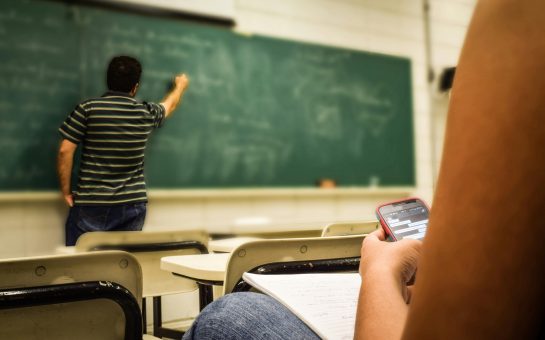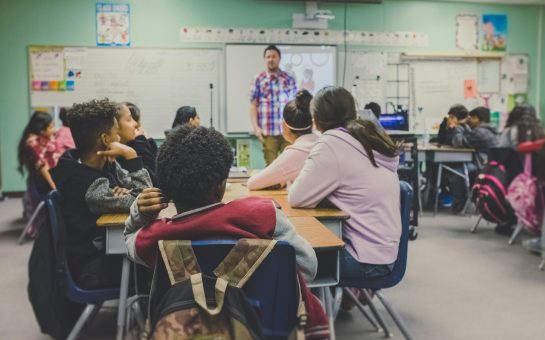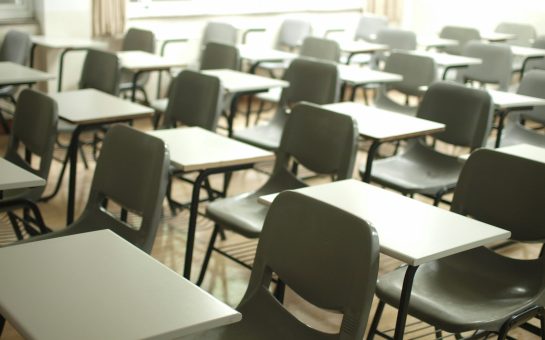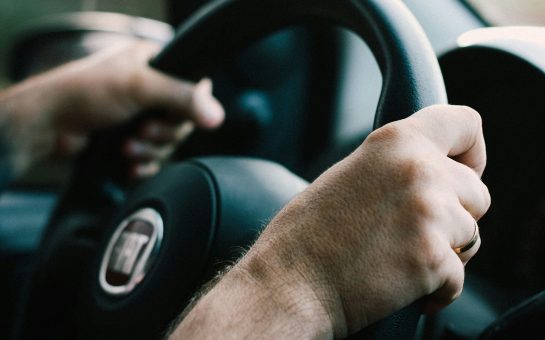By Emily Craigie
July 9 2020, 22.00
Follow
@SW_Londoner
Less than a fifth of children supported by a social worker are attending school amid concerns they are at risk of violence and criminality.
London social worker and British Association of Social Workers (BASW) professional officer Rebekah Pierre has warned of the increased risk to children from domestic violence, gangs and poverty.
The BASW said there are a number of reasons why vulnerable children are not attending school.
Ms Pierre said: “Some parents might feel like if they send the children to school that they will be monitored and spotted and flagged up to a social worker.”
The Children’s Commissioner for England’s head of public affairs Martin Lennon added that low attendance could be due to schools discouraging children from attending at the start of lockdown, the stigma of being ‘vulnerable’, the risk of children catching coronavirus or parents’ own bad experiences meaning they don’t encourage attendance.
As of September 2019, there were 337,400 children with a social worker.
The lowest day of attendance for those children in term-time was on March 30 when only 15,000 attended, according to Government data.
This is less than 5% of the total number of children with a social worker.
Education Policy Institute (EPI) executive director Natalie Perera said: “This is the most worrying element of lockdown for us, the impact on vulnerable children.”
If children are not attending school, teachers cannot spot signs of neglect which may lead to children falling through the cracks.
The Government has also changed the law so that social workers do not have to visit children every six weeks.
Instead social workers should visit when it is ‘reasonably practical’ due to concerns local authorities would struggle to cope.
For children supported by a social worker, non-attendance raises concerns, not only about the long-term impact on their attainment, but whether they’ll even return to school.
Prior to the pandemic Ms Pierre worked with a pupil who missed two years of school because of mental health issues due to trauma.
The child started attending school but Ms Pierre said the lockdown undid their progress and they might never return.
She also flagged the risks gangs pose to vulnerable children who are not going to school.
Ms Pierre said: “Now it is easier for children to be recruited into criminal activity, county lines and selling drugs because they might be bored at home or they might need the extra money if parents are struggling for income.”
However, as Reception, Year 1 and Year 6 pupils are returning, more vulnerable children are also returning, although not at the same rate.
Yet concerns remain about the strain the lockdown has put on elderly carers and whether children looked after by vulnerable people can return.
One grandparent Ms Pierre supported cares for a number of her grandchildren.
She said: “When the pandemic started it was a real source of anxiety. We had to balance sending these vulnerable children to school so they could get a free school meal and education with trying to balance them not coming home and infecting their one grandparent who was their legal guardian.”
While children from all backgrounds are supported by social workers, those in deprived areas are over 10 times more likely to enter the care system than those from the wealthiest areas, according to The Child Welfare Inequalities Project.
Furthermore, the Institute for Fiscal Studies (IFS) warned that the poorest fifth of pupils were doing 75 minutes less learning per day than the highest income families.
This equates to 15 full school days if schools don’t open until September.
The most-disadvantaged children are also least likely to have access to online lessons or a private study space.
Prior to lockdown disadvantaged children were already lagging behind their peers.
According to the EPI pupils who have been eligible for free school meals for at least 80% of their school lives are over two years behind those who aren’t as disadvantaged.
The EPI has called for Pupil Premium funding to be doubled for one year, from September 2020 for pupils entering Year 1, Year 7 and Year 11.
‘The poorest children are soon likely to be further behind other children than at any time in the past two decades.’
— EPI (@EduPolicyInst) June 22, 2020
EPI’s David Laws calls for a more targeted approach to pupil catch up funding and a clear plan to help schools reopen in September. https://t.co/eMMiqo9lWn
Despite low attendance figures, schools are working to ensure disadvantaged students are supported.
At Ark Evelyn Grace, a secondary school in Brixton, vulnerable students have daily contact from their safeguarding team.
The school also keeps in regular contact with pupils’ social workers and has provided laptops for some children who didn’t have one.
All schools are expected to fully reopen in September, according to Government guidance released last week.
Photo by Taylor Wilcox on Unsplash




